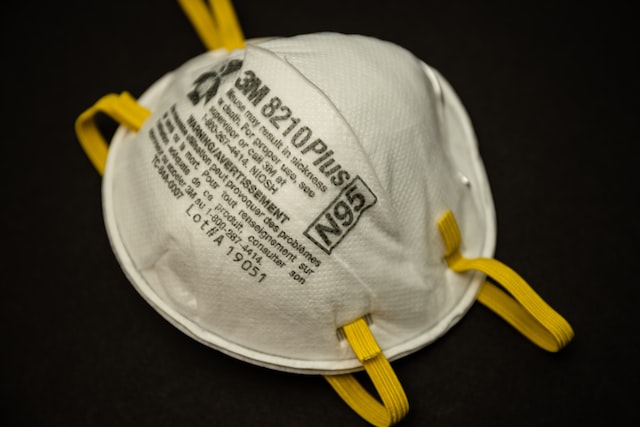
If you’ve been paying attention to the news lately, you may have heard about N95 masks and their importance for protecting your health. But what are N95 masks, exactly? And why are they so important for keeping you safe? In this blog post, we’ll answer those questions and more, so you can understand why it’s so important to have a few of these masks on hand in case of an emergency.
What are N95 masks and what do they do to protect your health?
N95 masks are designed to protect your lungs from harmful airborne particles. The ‘N95’ designation means that the mask will filter out at least 95% of particles that are 0.3 microns in size or larger. This includes viruses, bacteria, fumes, and smoke. The masks are made from non-woven fabric and have a nose clip that can be adjusted for a snug fit. They also have an inner layer of electrostatic material that helps to trap smaller particles. N95 masks are not intended for children or people with facial hair, as they may not provide a tight seal. When worn correctly, N95 masks made in USA can provide excellent protection against contact with harmful airborne particles. However, it is important to remember that they are not 100% effective and should not be the only measure taken to protect your health.
How can you tell if you need an N95 mask and where can you get them?
The CDC recommends that healthcare workers and those who are handling or caring for COVID-19 patients wear an N95 mask. However, there is a limited supply of N95 masks, so they should be reserved for those who need them the most. If you have symptoms of COVID-19, or if you have been in close contact with someone who has the virus, you should wear an N95 mask to protect yourself and others. You can get an N95 mask from your local health department or from a healthcare provider. You can also purchase them online, but be sure to select a reputable retailer. Look for a mask that has been certified by the NIOSH (National Institute for Occupational Safety and Health). An N95 mask will provide the best protection against COVID-19, but it is important to remember that wearing a mask does not replace other precautions like washing your hands and social distancing.
What are the risks of not wearing an N95 mask when necessary?
When it comes to personal protective equipment (PPE), an N95 mask is one of the most effective ways to safeguard oneself from harmful airborne particles. N95 masks are designed to filter out at least 95% of airborne particles, including viruses and bacteria. However, there are some risks associated with not wearing an N95 mask when necessary. First, it is possible for viruses and bacteria to enter through the eyes, nose, or mouth if the mask does not provide complete coverage. Additionally, if the mask does not fit properly, there is a chance that particles could leak through gaps around the edges of the mask. Finally, N95 masks can become less effective over time as they become saturated with particles. For these reasons, it is important to wear an N95 mask when working in close proximity to others or in areas where there is a risk of exposure to airborne particles.




